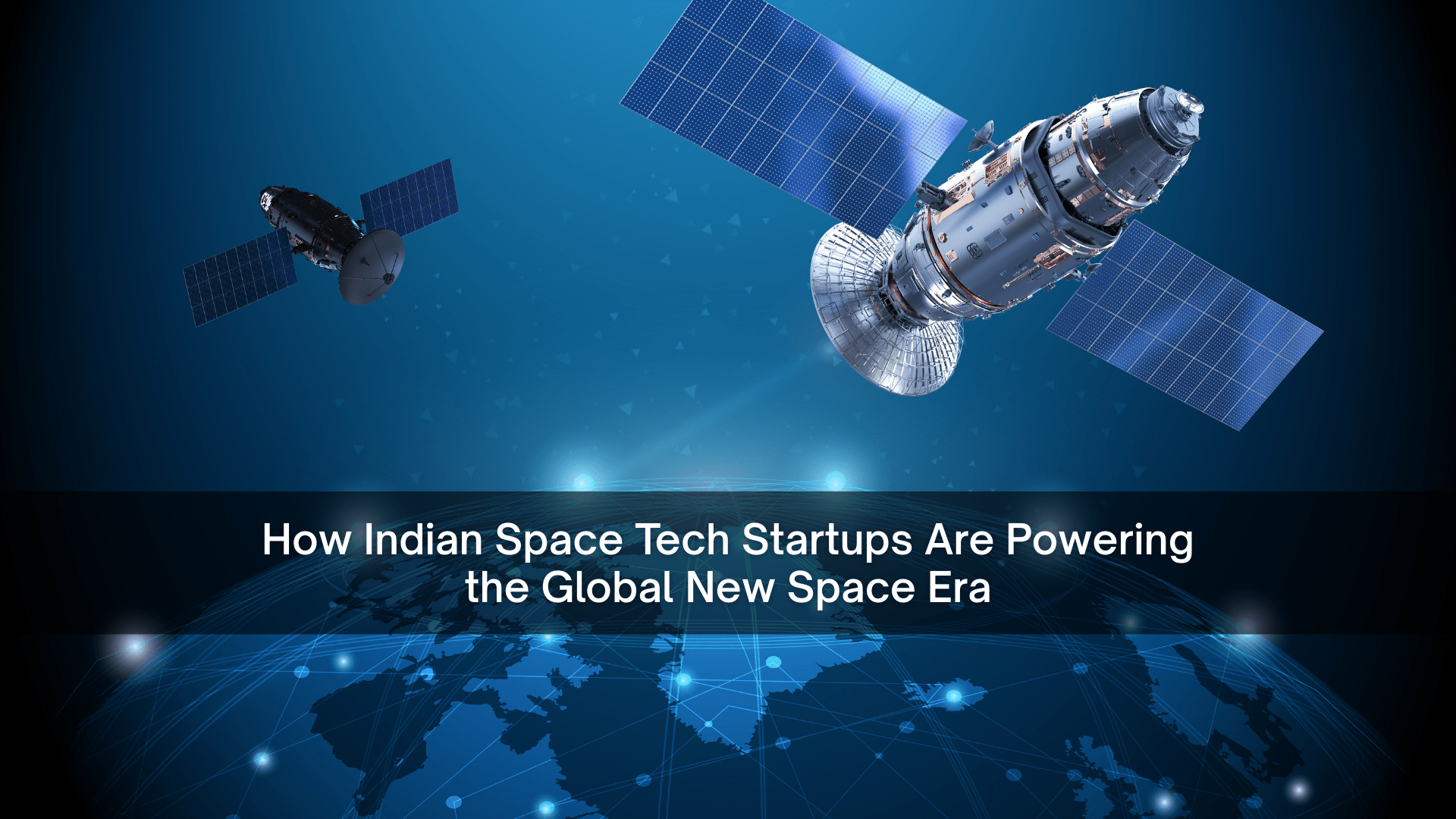India is advancing in all its sectors with a greater number of startups coming. You take any sector; there is a multi-fold growth over the years. Recently the space tech segment has been shaking up the world with great innovations, funding, and the creation of a vast number of opportunities.
What was once the playground of a few government agencies has now transformed into a vibrant ecosystem of private startups, cutting-edge research, and strategic investments. A decade ago, the scenario was completely different. The real shift began around 2020, when policy reforms, rising investor confidence, and entrepreneurial zeal ignited a new era for India’s space industry.
Until 2020, the Indian space sector was largely driven and controlled by ISRO. Private companies are mainly vendors or contractors supplying parts, not independent innovators. Private companies are not actively part of the space missions. The space ecosystem was closed, with very limited room for startups to build and launch their own solutions. During that period in June 2020, the Indian government came in with a historic space sector reform. This has opened doors for private participation in missions and areas like satellite building, launch vehicle development, space-based services and applications, and ground infrastructure.
To facilitate this, the government established IN-Space (Indian National Space Promotion and Authorization Centre), a nodal agency to regulate and promote private space activities.
The global space economy was valued at nearly $630 billion in 2023, and it is expanding at a pace that outstrips global GDP growth. Analysts project it will more than triple to $1.8 trillion by 2035, growing at an average rate of around 9% annually. This surge is fuelled mainly by breakthroughs in space-based and space-enabled technologies from communications, navigation, and precision timing to Earth observation and satellite-driven applications that power industries back on Earth.
During this global boom, India’s space economy is setting out a larger role for itself. Earlier it was valued at $9.6 billion in 2020, which is roughly 2–3% of the global share, but it is expected to reach $13 billion by 2025 and soar to $44 billion by 2033, accounting for nearly 10% of the world’s space market. Over the next decade, the sector is anticipated to attract investments worth $25 billion.
Even funding numbers support the growth that we are witnessing in this segment. Well, before we dive into funding, if we understand the scenario of startups, it gives us a clear picture. In 2023 alone, India has more than 100 startups registered with ISRO. According to a report released by the Treelife, there are over 523 private companies and research institutions that are actively working in the space sector. Well, these 523 companies are not just limited to either building or launching satellites. The space sector is so vast and has humongous opportunities.
To give you a better understanding, let’s understand how many different segments there are in the space sector. The sector is divided into two major segments, such as upstream and downstream. Even midstream is there, but most of them are divided into two segments.
In the upstream segment we have satellites, launch vehicles and their components, and space infrastructure development. Space stations, space tourism, in-orbit services, and space manufacturing. When it comes to downstream, we have Earth observation, positioning, navigation and timing services, satellite communications, and space-based services for strategic purposes.
So, if you understand the segmentation, let’s get into the details of the startups and how the government has shaped up this sector over the period. There are companies in India working towards a specific goal and planning to launch their missions in the next few years. Already there are some companies making headlines with their achievements.
Pixxel is building a constellation of hyperspectral imaging satellites to deliver high-resolution data for monitoring Earth in real time, from agriculture to climate change. Bellatrix Aerospace is making advanced propulsion systems, including green thrusters and electric engines that have already flown on ISRO missions. Skyroot Aerospace created history with Vikram-S, India’s first private rocket, and is now gearing up for orbital launches. Agnikul Cosmos has developed India’s first 3D-printed, single-piece engine, tested from its own private launchpad, pioneering customizable rockets. Stardour Aerospace recently test-fired India’s first hydrogen-oxygen propulsion engine at IISc, powering its upcoming Lucas Orbital Transfer Vehicle set to launch in 2027. Vesta Space Technology focuses on compact, small-satellite platforms, while InspeCity is working on extending satellite lifespans, tackling the critical challenge of orbital sustainability. Together, these startups highlight India’s shift from a government-dominated program to a vibrant ecosystem driving global space innovation, propulsion, launch, imaging, and satellite services.
But this is all happening with the support of government initiatives and funding. NewSpace India Limited (NSIL), ISRO’s commercial arm, was restructured to transfer technology and commercialize space products, services, and missions. This gave private players access to proven technologies while enabling them to scale faster. Further, the Indian Space Policy 2023 laid down a long-term roadmap, emphasizing private sector leadership in building satellites, launch vehicles, and applications, with ISRO focusing on advanced R&D.
Financial support is also emerging. Initiatives like iDEX (Innovations for Defence Excellence) and startup-focused funds are encouraging space tech companies to secure early-stage capital, while state governments like Karnataka and Telangana are building dedicated aerospace parks and incubation programs.
In the Union Budget 2024–25, the government allocated around ₹13,042 Cr to the Department of Space. Out of this, a large portion goes to ISRO’s missions, R&D, and infrastructure, but increasingly, a share is being directed toward private partnerships and enabling policies.
So, in the coming days, with the increasing government support and continued innovation by Indian startups, we can expect major headlines and news that will shake the world. This is the time to start and show the power of Indian innovation.








